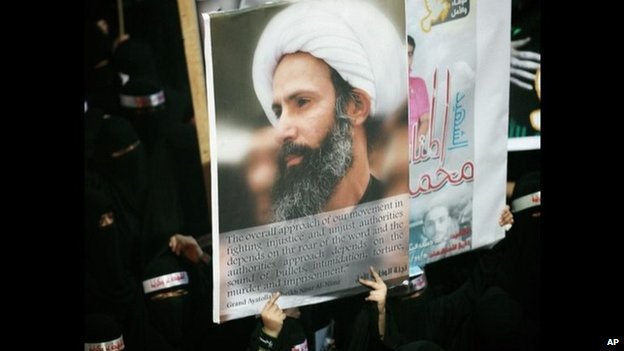
RNA - But now, death sentences for three Shi'ite Muslims including a prominent dissident cleric suggest that the region’s wider turmoil is further hardening attitudes toward the sect at home.
The news has not triggered the sort of clashes that left three people dead after the arrest of the cleric, Sheikh Nimr al-Nimr, in 2012, but it did lead to consecutive nights of protests for the first time in months.
It also prompted a warning from Iran, the regional Shi'ite power that Riyadh accuses of fomenting unrest among its Shi'ites, and that is vying with Saudi Arabia's Sunni rulers for influence in conflicts raging from Lebanon to Yemen, Iraq, Bahrain and, most acutely, Syria.
"There is nothing formal, but when they are angry about Iran, their doubts over Shi'ites increase, and sectarian sentiments rise as well. It certainly affects policy making and behavior," said Tawfiq al-Seif, a Shi'ite community leader in Qatif, one of the two main centers of the sect in Saudi Arabia, along with al-Ahsa.
Saudi Shi'ites, long regarded by the kingdom's official Wahhabi Sunni school as heretics, have for decades been tarred by many compatriots as more loyal to their coreligionists across the Gulf than to the Saudi ruling dynasty.
Protests in Qatif in 2011 and 2012 were dismissed by the government as instigated by a ‘foreign power’, code for Iran, and Nimr was accused of serving Iranian interests. The demonstrators denied the accusation.
R111/108/B/